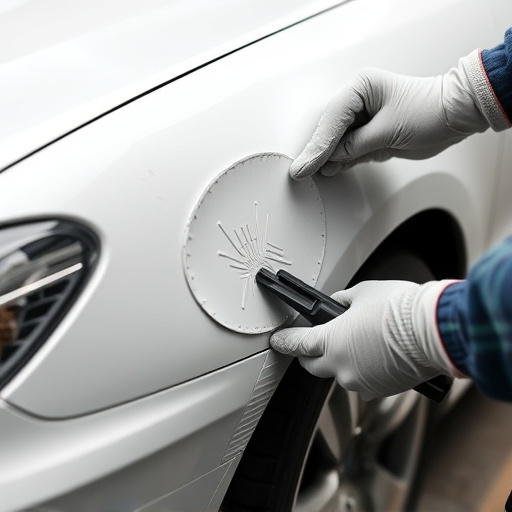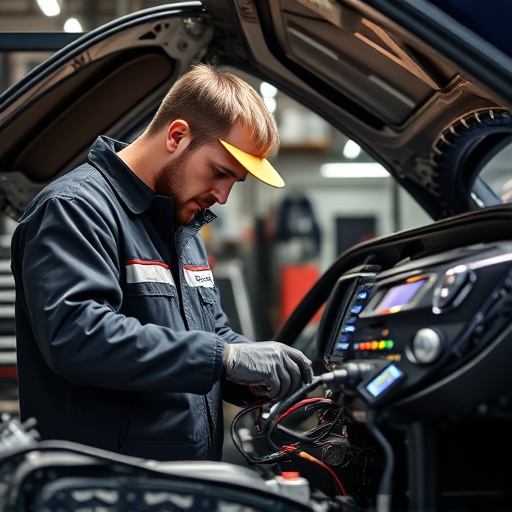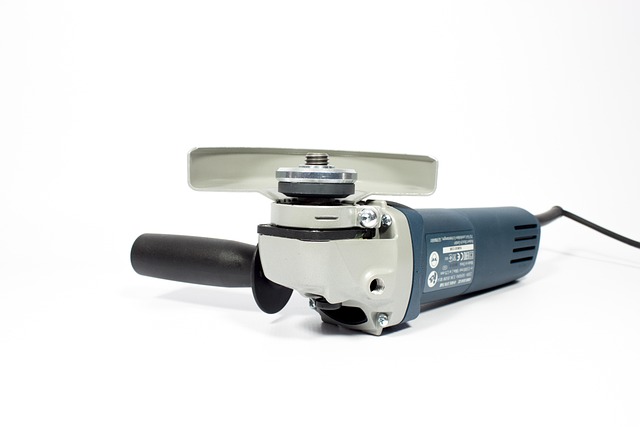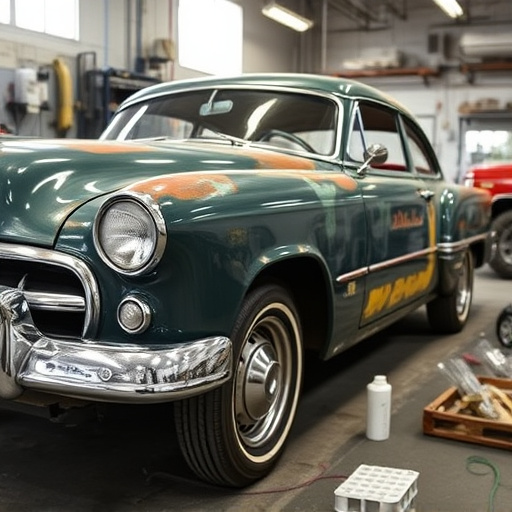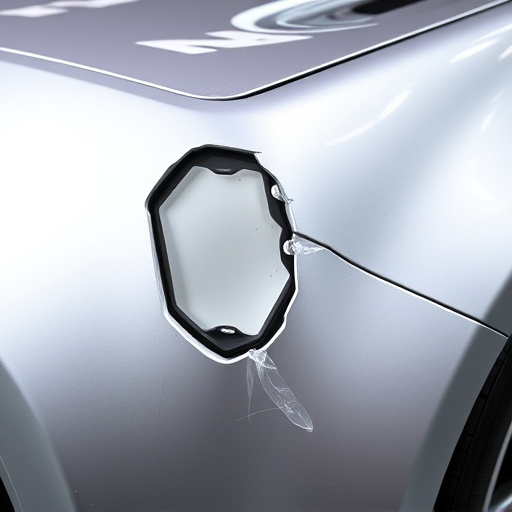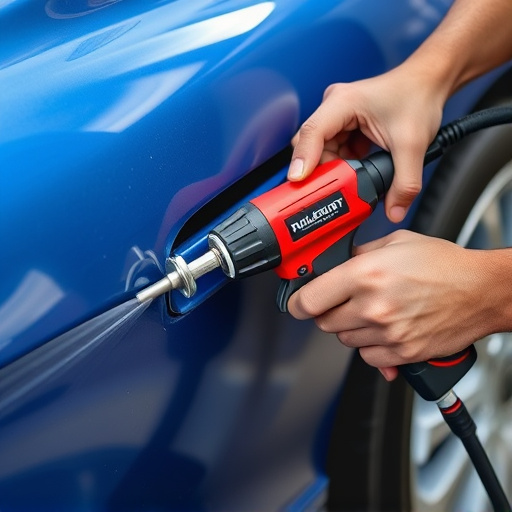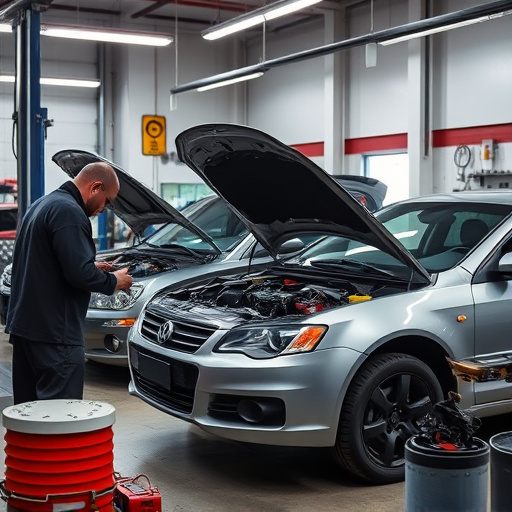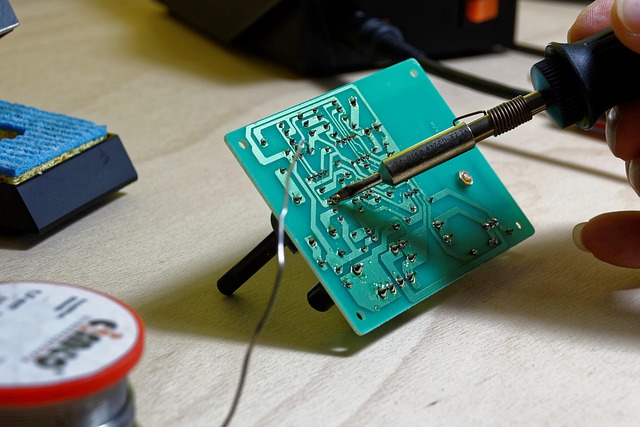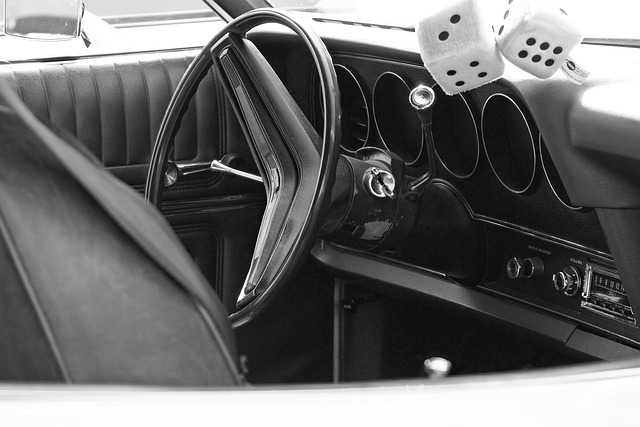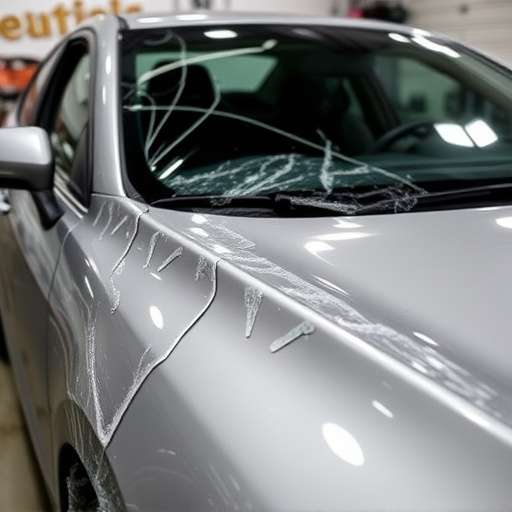Auto body fasteners play a vital role in preserving vehicle longevity and aesthetic appeal, especially in regions with harsh weather conditions. They protect against corrosion and rust by preventing water penetration during repairs or painting. Choosing the right fasteners, such as stainless steel, galvanized, or coated options, ensures structural integrity and quality, particularly in humid areas prone to rust formation. Regular inspection and replacement, along with proper maintenance, are crucial for keeping a car rust-free, focusing on vulnerable areas like tires and fenders.
Auto Body Fasteners: The Unseen Guardians Against Rust and Corrosion
In the automotive world, ensuring a vehicle’s structural integrity involves more than just visible components. Auto body fasteners, often overlooked, play a critical role in preventing rust and corrosion, safeguarding against potential safety hazards. This article explores the essential practices and advancements in auto body fasteners designed to combat corrosion, offering valuable insights for car owners and enthusiasts alike. Discover the various types of fasteners and their unique rust-resistant features, and learn best practices for maintaining a rust-free ride.
- Understanding Auto Body Fastener Corrosion Prevention
- Types of Auto Body Fasteners and Their Rust-Resistant Features
- Best Practices for Maintaining Rust-Free Cars Using Fasteners
Understanding Auto Body Fastener Corrosion Prevention

Corrosion and rust are common issues that can significantly impact the longevity and aesthetic appeal of a vehicle’s body, especially in regions with harsh weather conditions. This is where auto body fasteners play a crucial role in prevention. These specialized fastening solutions are designed to not only secure panels during repairs but also to offer long-lasting protection against environmental elements.
Understanding the importance of corrosion resistance starts with recognizing that auto body fasteners serve as the first line of defense against rust. When a car undergoes a body shop for repairs or an auto painting session, using fasteners treated with protective coatings or made from corrosion-resistant materials ensures that water and moisture do not penetrate the vehicle’s skin. This is particularly vital in regions with high humidity or frequent rainfall, where vehicles are more susceptible to rust formation. By selecting the right auto body fasteners, professionals in vehicle body repair can ensure the structural integrity of the car remains intact while also safeguarding its overall quality.
Types of Auto Body Fasteners and Their Rust-Resistant Features

Auto body fasteners play a crucial role in maintaining the structural integrity and aesthetic appeal of vehicles, especially when it comes to tackling rust and corrosion issues. These specialized fasteners are designed to withstand the harsh environmental conditions that cars often face, ensuring long-lasting performance. There are several types available, each with unique properties to combat corrosion:
1. Stainless Steel Fasteners: Known for their exceptional resistance to rust and corrosion, stainless steel fasteners are a popular choice in automotive repair and auto body work. This type is particularly effective in preventing issues within the car body shop, as it can tolerate moisture and extreme temperatures without compromising its strength or durability.
2. Galvanized Fasteners: These fasteners receive a thin layer of zinc coating, which acts as a barrier against moisture and oxygen, thus slowing down the corrosion process. This galvanization process is an affordable solution for auto body work, making it an excellent choice for those seeking a cost-effective rust prevention method in their car body shop without sacrificing quality.
3. Coated Fasteners: Some fasteners come with specialized coatings designed to repel water and prevent metal interaction that leads to corrosion. These coated options are versatile and can be used in various automotive repair scenarios, offering an easy solution for auto body work when quick turnaround times are essential.
Best Practices for Maintaining Rust-Free Cars Using Fasteners

Maintaining a rust-free car is every vehicle owner’s dream, and auto body fasteners play a crucial role in achieving this. Here are some best practices to keep your ride in pristine condition, ensuring years of corrosion-free driving.
Regularly inspecting and replacing any worn or damaged fasteners is essential. These components hold your vehicle’s exterior together, so keeping them in top shape prevents rust from setting in. When performing tire services or fender repair, don’t overlook the fasteners. Check for signs of rust, especially in areas exposed to moisture or extreme temperatures. Using high-quality auto body fasteners that are designed to resist corrosion can significantly extend their lifespan and protect your car’s underbody. Additionally, proper lubrication of these fasteners can reduce friction, making them easier to tighten and preventing premature wear.
Auto body fasteners play a crucial role in maintaining the structural integrity and aesthetic appeal of vehicles. By understanding corrosion prevention methods, choosing the right types of fasteners with rust-resistant features, and adhering to best practices for maintenance, car owners can ensure their vehicles remain in top condition, preserving both performance and value over time. Effective use of auto body fasteners is a key step in navigating the challenges posed by moisture, salt, and other environmental factors that could lead to costly rust and corrosion issues.
